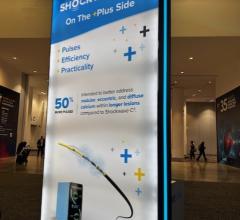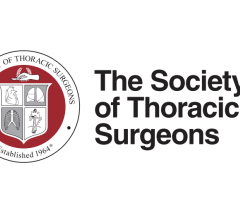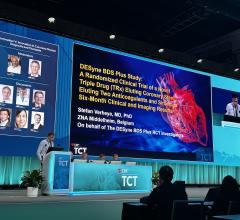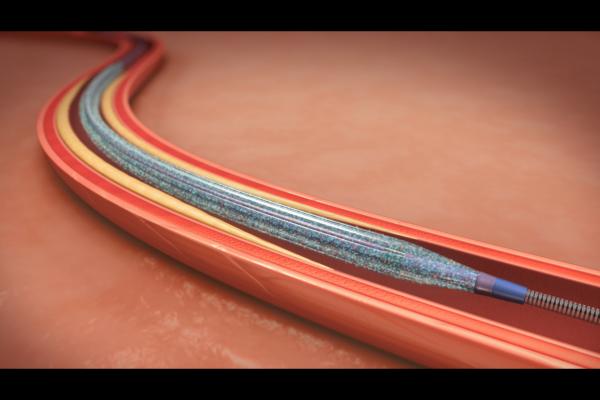
October 22, 2015 — Results from the ISAR-DESIRE 4 trial indicate that use of a scoring balloon plus a paclitaxel-coated balloon (PCB) was angiographically superior to a paclitaxel-coated balloon alone for the treatment of restenosis within limus-eluting stents.
Findings from the study were presented last week at the 27th annual Transcatheter Cardiovascular Therapeutics (TCT) scientific symposium, sponsored by the Cardiovascular Research Foundation (CRF).
Restenosis after drug-eluting stent implantation (DES) in patients with coronary artery disease occurs in up to 5-10 percent of cases, and the most appropriate treatment strategy remains unclear. Drug-coated balloons (DCB) are novel devices that can effectively treat in-stent restenosis. Scoring balloon (SCB) devices prevent balloon slippage and enhance local plaque disruption during angioplasty but have failed to demonstrate an advantage when used as stand-alone therapy. As an adjunct to DCB, scoring balloon pre-dilatation might enhance tissue uptake and improve clinical outcomes. ISAR-DESIRE 4 examined if the addition of a scoring balloon would lead to better results.
A prospective, randomized, active controlled, multicenter clinical trial, ISAR-DESIRE 4 enrolled 252 patients with limus-eluting stent restenosis and signs of ischemia. Patients were randomized 1:1 to a scoring balloon plus paclitaxel-coated balloon (N=125) or standard balloon plus paclitaxel-coated balloon (N=127) during angioplasty. Angiographic follow-up at six to eight months was performed in 80.4 percent of patients (N=203) and clinical follow-up occurred at 12 months.
The primary endpoint was the percent diameter stenosis at follow-up angiography. The results were 40.4 percent ± 21.4 for the SCB plus PCB group vs. 35 percent ± 16.8 for the PCB-alone group (p=0.047). The secondary endpoint of binary restenosis was also lower in SCB plus PCB compared to PCB alone (18.5 percent vs. 32 percent, P=0.03). The rates of target lesion revascularization (16.8 percent vs. 22.6 percent, P=0.25) and death/myocardial infarction (3.4 percent vs. 3.3 percent, P>0.99) were similar for both groups.
“In patients with limus-eluting stent in-stent restenosis, plaque modification with SCB plus PCB was angiographically superior to standard PCB therapy in terms of in-segment percent diameter stenosis after six to eight month follow-up,” said investigator Robert A. Byrne, MB, B.Ch., Ph.D. from Deutsches Herzzentrum in Munich, Germany.
“Even though the rate of binary restenosis was lower with SCB plus PCB, clinical outcomes at one year were similar for both groups.”
The ISAR-DESIRE 4 trial was supported in part by a research grant from Biotronik AG. Byrne reported receiving lecture fees from B. Braun Melsungen AG, Biotronik and Boston Scientific.
For more information: www.tctconference.com

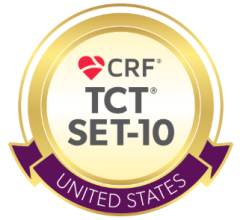
 October 31, 2025
October 31, 2025 





